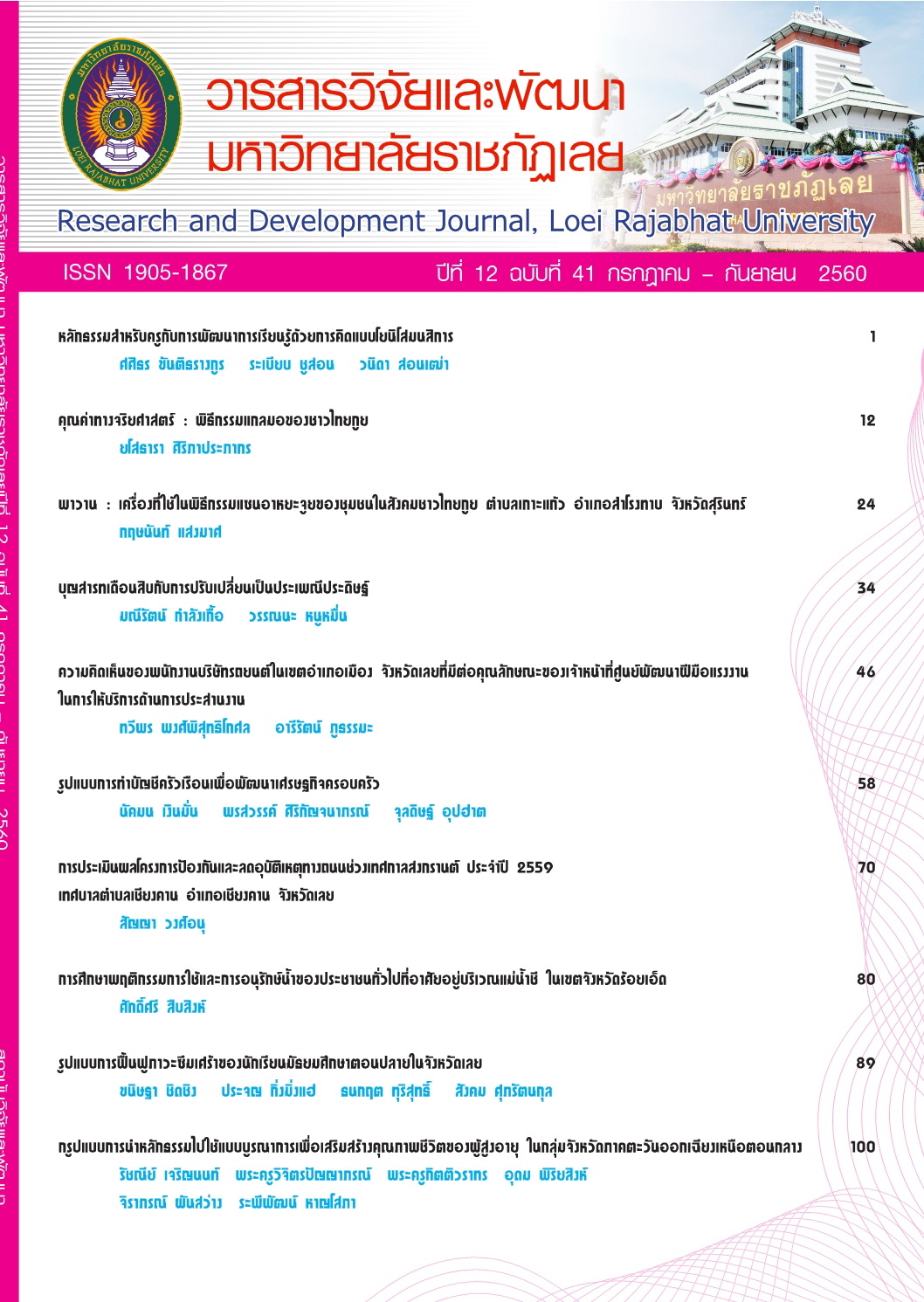หลักธรรมสำหรับครูกับการพัฒนาการเรียนรู้ด้วยการคิดแบบโยนิโสมนสิการ
Keywords:
หลักธรรม, ครู, การจัดการเรียนรู้, การคิดแบบโยนิโสมนสิการ, moral principles, teachers, learning management, Yonisomanasikara thinkingAbstract
Moral principles for teachers and their learning management are the keys for teachers’ practice using Buddha’s doctrine as a way to behave properly. Those doctrines are composed of Khanti Sorachja which means endurance and gentleness, Phromwiharn 4 as a highly respected human conduct, Sunkahawatthu 4 as a principle to hold one’s mind, and KanlayanamitraTham as being a genuine and sincere friend. On using Buddha principles in instructional management to construct critical thinking as Yonisomanasikara doctrine is a teaching and learning process which the teacher as a role model on his/her accepted behavior to motivate the students in acquiring faith in learning, and also to train student analytical thinking in solving problems and searching for the problems’ causes. Therefore, the teacher, claimed as a key person, has to play an important role in instructional management in guiding, advising, and facilitating the students to lead the goal of learning and be able to apply those knowledge in living. The students could also determine critically in solving problems, be decisive, learn happily and confront any changes with full potential in modern society.
Downloads
Published
How to Cite
Issue
Section
License
ข้อความที่ปรากฎในวารสารฉบับนี้เป็นความคิดเห็นของผู้เขียนแต่ละท่าน สถาบันวิจัยและพัฒนา มหาวิทยาลัยราชภัฏเลย และกองบรรณาธิการ ไม่จำเป็นต้องเห็นด้วยและไม่มีส่วนรับผิดชอบใดๆ
สถาบันวิจัยและพัฒนา มหาวิทยาลัยราชภัฏเลย ขอให้ผู้อ่านอ้างอิงในกรณีที่ท่านคัดลอกเนื้อหาบทความในวารสารฉบับนี้



